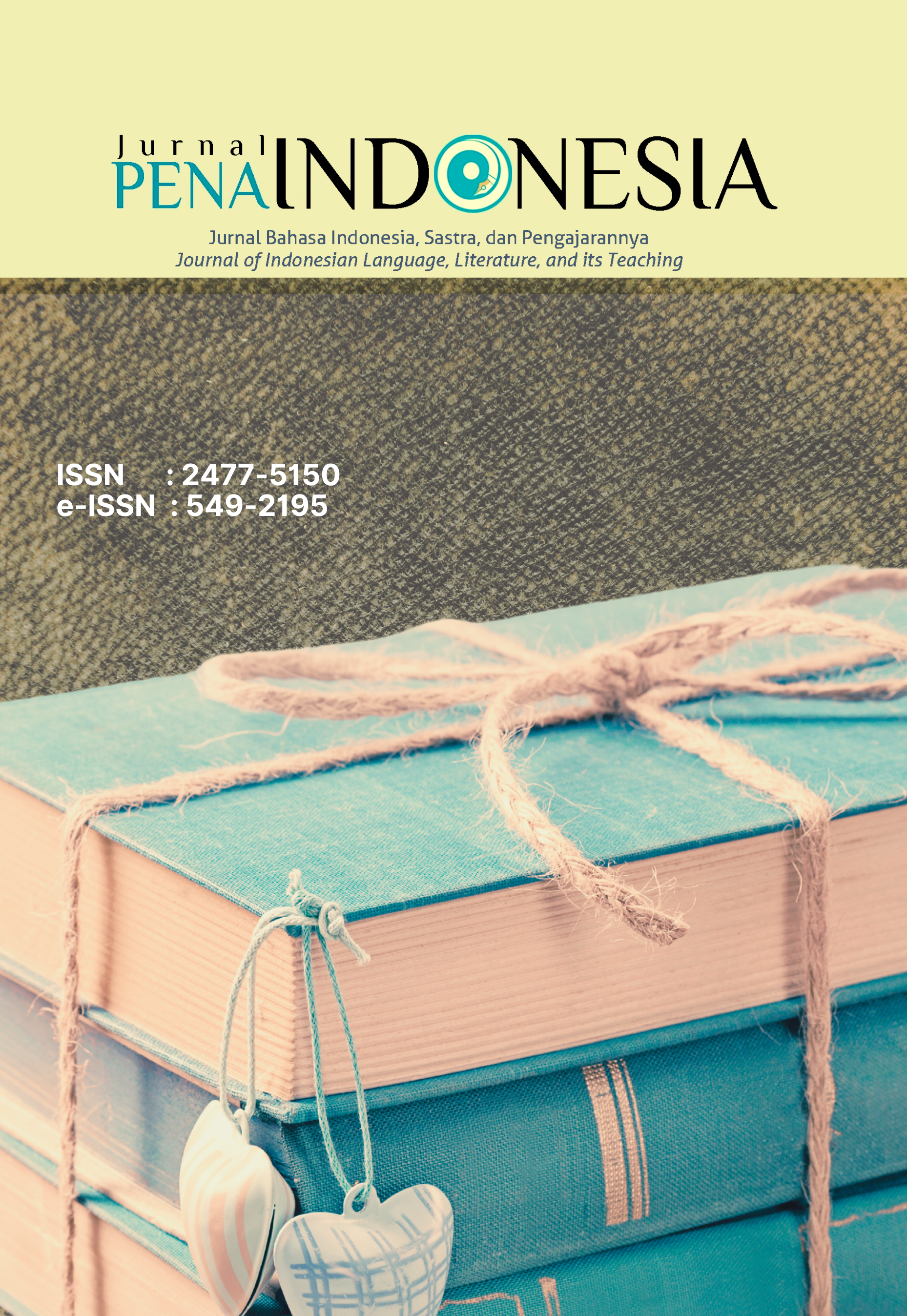Eco-literacy Training as Teaching Material for Surabaya Primary Teachers to Achieve SDGs
Main Article Content
Abstract
The purpose of service activity is to describe how to create learning materials using
various types of text by bringing eco-literacy approach and participants' responses.
Our partners encounter a challenge wherein teachers struggle to provide instructional
materials aligned with the concept of environmental awareness due to the continued
emphasis on teacher-centred learning. The consequence is the students’ cognitive
skills remain at a low level, and a lack of interest in environmental matters. Eco-
literacy strategies are the solution to develop teachers’ instructional materials that
align with the principles of sustainable development and environmental awareness and
enhances stuents’ active learning. Workshops and socialization were implemented and
30 primary teachers in Surabaya participated. The instruments were a pre-post-test and
a questionnaire. The results indicate that the teachers' comprehension of eco-literacy
concept has been enhanced. They can also develop materials and lesson plan based
on eco-literacy approach. In addition, nearly all teachers express feelings of
enthusiasm and happiness regarding this activity, and 85% indicated they enable
creating learning activities. It was concluded that this activity could improve their
knowledge regarding the concept of eco-literacy. It is suggested to employ engaging
instructional materials to facilitate the realization of SDGs.
Article Details
References
Boulaid, F., & Handoko, H. (2024). Cultivating Ecological Awareness Through the Integration of Eco-Linguistic Themes in English for Specific Purposes: A Case Study of Higher Schools of Technology. Gramatika STKIP PGRI Sumatera Barat, 10(1), 131145. https://doi.org/10.22202/jg.2024.v10i1.8062
Gaj, N., & Machtinger, E. (1997). Literacy for Life. The Women’s Review of Books, 14(10/11), 21. https://doi.org/10.2307/4022716 Haggag, H. M. (2023). Using Green Pedagogy Approach for Enhancing Inferential Reading Skills and Eco-literacy Oriented Incidental and Intentional English Vocabulary of Pre - service Teachers of Scie, 55(55), 521–552. https://doi.org/10.21608/maeq.2023.299671
Harste, J. C., & Vasquez, V. M. (2018). What Do We Mean by Literacy Now? Global Conversations in Literacy Research, 10(3), 14–28. https://doi.org/10.4324/9781315182360-2
Iklil Saifulloh, A., Retnaningdyah, P., & Mustopa, A. (2023). Damaging Discourse in Online News Trends Over Ecological Literacy. 5(4), 885–900. https://www.elitejournal.org/index.php/ELITE
Ilgen, M. (2007). What does literacy look like in a project based , technology supported school ?
Indah Laksono, K., & Andrian Sari, U. (2023). Green Behavior : Perspektif Ecoliteracy Dalam Program Adiwiyata. Proceeding International Conference on Islamic Education, 8, 268–275. Keefe, E. B., & Copeland, S. R. (2011). What is literacy? the power of a definition. Research and Practice for Persons with Severe Disabilities, 36(3–4), 92–99. https://doi.org/10.2511/027494811800824507
Kustini, S., Suherdi, D., & Musthafa, B. (2020). Beyond Traditional Literacies: a Multimodal-Based Instruction To Fostering Student Digital Literacy Learning. Jurnal Pendidikan Bahasa Dan Sastra, 20(1), 37–47. https://doi.org/10.17509/bs_jpbsp.v20i1.25969
Kusumawardani, R. R. W. A., & Kuswanto, K. (2020). Membangun kesadaran lingkungan melalui ekopedagogik pada anak usia dini berlandaskan konsep Jan Ligthart. Jurnal Pendidikan Anak, 9(2), 94-99. https://doi.org/10.21831/jpa.v9i2.31997 Lan, C., & Fan, S. (2019). Developing classroom-based language assessment literacy for in-service EFL teachers: The gaps. Studies in Educational Evaluation, 61(8), 112–122. https://doi.org/10.1016/j.stueduc.2019.03.003 Literacy Skills and Teachers. (2011).
Lu, D., & Xie, Y. N. (2024). The development of EFL pre-service teachers’ critical thinking in teaching practicum: a case study. Professional Development in Education, 00(00), 1–16. https://doi.org/10.1080/1941525 7.2024.2364322
Rabbianty, E. N., Raihany, A., Syafik, M., Muqoddas, N., Irwansyah, H., Rahmawati, F., & Febrianingrum, L. (2022). Pemahaman Mahasiswa Terhadap Literasi Lingkungan (Ekoliterasi): Potensi dan Tantangan Menuju Kampus Ramah Lingkungan. Andragogi: Jurnal Diklat Teknis Pendidikan Dan Keagamaan, 10(2), 163176. https://doi.org/10.36052/andrag ogi.v10i2.302
Valtonen, T., Sointu, E., Kukkonen, J., Kontkanen, S., Lambert, M. C., & Mäkitalo-Siegl, K. (2017). TPACK updated to measure pre-service teachers’ twenty-first century skills. Australasian Journal of Educational Technology, 33(3), 15–31. https://doi.org/10.14742/ajet.3518

